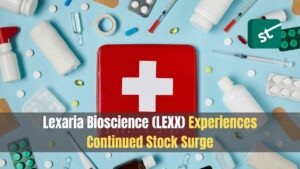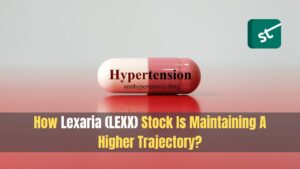Lexaria Bioscience Corp. (NASDAQ: LEXX) experienced a significant rise in its stock value during the after-market session on Monday, following a period of stability during regular trading hours. The company’s shares increased by 6.60%, reaching $3.39 after hours on the US stock charts. This surge was driven by the release of promising study results by the company, highlighting advancements in their ongoing research initiatives.
Lexaria Formed Promising Research Collaboration with NRC
Lexaria (LEXX) recently published positive findings from a collaborative study initiative with the National study Council of Canada (NRC). In conjunction with semaglutide, a drug that functions as a glucagon-like peptide-1, or GLP-1, the study’s objective was to evaluate significant aspects of DehydraTECH’s mode of action.
Semaglutide is an active ingredient in Rybelsus, a prescription drug used to treat Type 2 diabetes, therefore this finding is very significant. Using artificial gastric juice to replicate the conditions of the human gut, the study included a detailed examination of the molecular properties of Rybelsus and semaglutide that had been processed by DehydraTECH.
Advanced testing methods, including polyacrylamide gel electrophoresis (PAGE), size exclusion chromatography (SEC), electrospray ionization mass spectrometry (ESI-LCMS), and dynamic light scattering (DLS), were employed to assess the performance of the formulations.
LEXX Shared Encouraging Results and Future Prospects
The findings from the PAGE and SEC analyses were particularly noteworthy, revealing that semaglutide was efficiently released in its monomeric form in the simulated gastric fluid across both formulations. This outcome is significant because the monomeric form of semaglutide is crucial for its ability to permeate the gastric epithelium and be delivered systemically.
Notably, Lexaria’s DehydraTECH technology achieved this result without the proprietary salcaprozate sodium (SNAC) ingredient, which is integral to Rybelsus. While the results from the DLS and ESI-LCMS testing were less conclusive, the overall findings support the potential of DehydraTECH in GLP-1 formulation and oral delivery.
Lexaria, in collaboration with the NRC, plans to conduct further experimentation to expand on this work, potentially under additional conditions that more closely mimic the human gut environment.












